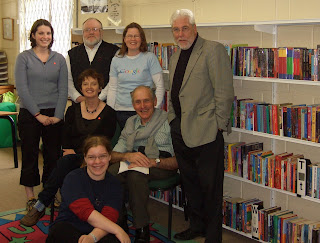‘Observing The Loons’ p
A nonsense poem written as a tribute to Spike Milligan and the Goons by E. J. Ryan.
There exists in this world a very strange place,
It’s the land of the little known Loons.
All of the Loons wear long pantaloons,
You won’t see a trousers a skirt or a kilt,
Not a shorts or a long evening dress,
Just long pantaloons is worn by the Loons,
For that is their national dress.
***************** *
A young girlie Loon came skipping along,
She was waving a stick in the air,
She asked a man Loon, “Do you like my balloon?
Have you ever seen anything so rare?
Compare!
Have you ever seen anything so rare?”
Well he looked at the stick and he thought rather quick,
Of something to tell the young Loon.
He said, “As to the stick I think it unique,
But I’m failing to see a balloon,
Young Loon!
Wherever is your balloon?”
Well, she stopped and she stared, I’d have to say glared,
Till she made him feel quite ill at ease,
Then she opened her gob and let out one sob
And bounced up and down on her knees,
Oh please!
She bounced up and down on her knees!
In the land of the Loon they have lunch around noon,
Which consists of several dishes,
Such as soup of racoon scooped up with a spoon
And crusts spread with butterfish fishes,
Delicious!
Thick crusts spread with butterfish fishes.
Then they wash it all down with a liquid that’s brown,
There’s a delivery by tanker each day,
They go into a ‘tis if you ask what it is,
“It’s better you don’t know”, they say.
I say!
“It’s better you don’t know”, they say.
There isn’t a Loon that can hold a good tune,
A sad fact that’s known to them all,
When they open their mouth, to sing or to shout,
It sounds like an elephant’s call, what a bawl.
Caterwaul!
It sounds just like an elephant’s call.
If you see a young Loon step an old rigadoon,
Better take to your heels with the chance,
Or before you can say, “Please get out of my way”,
He will sweep you up in the dance.
Perchance!
He will sweep you up in the dance.
All of the Loons in the land of that name,
Have a terrible habit of spitting,
They don’t seem to care, they spit everywhere,
Even under the chair where they’re sitting.
They’re spitting!
Beneath the chair where they’re sitting.
If you ask any Loon if the bus will come soon,
Or if the trains are running on time,
They will take off their hat, and after they’ve spat,
They will answer you in Loonish rhyme,
Sublime!
They will answer you in Loonish rhyme.
If a Loon sees a tram he eats crackers with jam,
It’s a feature that can’t be explained,
Then they spin round and round till they fall to the ground,
It’s something that’s simply ingrained,
Not trained!
But something that’s simply ingrained.
In the land of the Loon on the eve of full moon,
They get merry on sweet cherry wine,
Then they take off their shoes and go for a snooze,
And they dream of being divine,
What swine!
To dream of being divine!
There once was a Loon who thought it a boon,
To give parts of himself away free,
I don’t care to relate here his terrible fate,
For it’s far too painful you see,
Oh me!
It’s far too painful you see.
Never whistle a tune in the land of the Loon,
Or their actions will surely astound you,
Every Loon near and far with feather and tar,
Will come in a crowd and surround you,
I warned you!
They’ll come in a crowd and surround you.
Should you go very soon to the land of the Loon,
There are several essentials to bring,
A fine prancing horse, galoshes, of course,
And a bell with a loud ting-a-ling,
Oh do bring!
A bell with a loud ting-a-ling.
I would be a buffoon to malign the poor Loon,
But I think that you’ve formed the idea,
If I had to pick between the Loons or be sick,
I think I’d prefer diarrhoea,
Do you hear!
I think I’d prefer diarrhoea.
copyright Edward Ryan 2007
.jpg)




